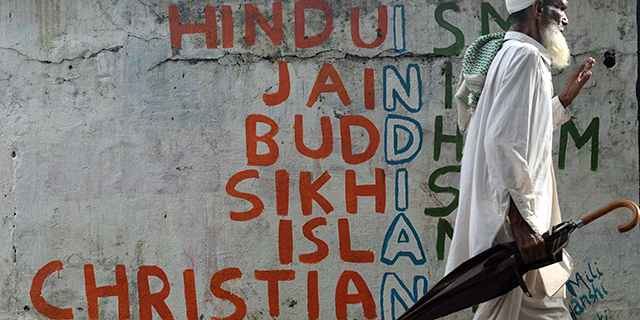The Future of Corporate Responsibility
Corporate responsibility: How far will tech firms go in helping repressive regimes?
Corporate responsibility: How far will tech firms go in helping repressive regimes?
The declaration of Mohamed Morsi as Egypt’s first freely elected president marks a major milestone for a country that until February 2011 had spent nearly three decades under the authoritarian rule of Hosni Mubarak. At the same time, for significant numbers of Egyptians, Morsi’s relatively narrow victory over former Prime Minister Ahmed Shafiq has the potential to raise questions about Islam’s role in society.
Following a year of tensions between their country and the United States, Pakistanis continue to hold highly unfavorable views of the U.S. and offer bleak assessments of the relationship between the two nations. And President Obama is held in exceedingly low regard. Additionally, over the last few years, Pakistanis have become less willing to work with the U.S. on efforts to combat extremist groups.
The gap in religious values between Republicans and Democrats has widened over the past 25 years, according to the Pew Research Center’s American Values Survey.
Polling conducted in May and early June by the Pew Research Center for the People & the Press finds that Mitt Romney continues to hold a commanding lead over Barack Obama among white evangelical voters. But Obama leads Romney by large margins among black Protestants and religiously unaffiliated voters.
Overview As Americans head to the polls this November, their values and basic beliefs are more polarized along partisan lines than at any point in the past 25 years. Unlike in 1987, when this series of surveys began, the values gap between Republicans and Democrats is now greater than gender, age, race or class divides. […]
A year after the ouster of Hosni Mubarak, a new nationwide survey finds that Egyptians remain upbeat about the course of the nation and prospects for progress. Most Egyptians continue to support democracy, and most also want Islam to play a major role in society.
The latest Pew Research Center polling shows that Obama has strong support from black Protestants and the religiously unaffiliated, while Romney holds a lead among white evangelicals and white Catholics. The complete report includes general election preferences by religion and by gender within religious groups as well as voters' views on which issues are very important in deciding who to vote for this fall
About four-in-ten (41%) state prison chaplains say that religious extremism is either very common (12%) or somewhat common (29%) among inmates.
In the Maryland and Wisconsin primaries, Romney and Santorum ran neck and neck among white born-again/evangelical voters, while Romney was the clear favorite of non-evangelical voters. Romney was also victorious among Wisconsin voters who attend religious services only occasionally and those who attach little importance to having a candidate who shares their religious beliefs.
The Global Religious Futures (GRF) project is jointly funded by The Pew Charitable Trusts and The John Templeton Foundation. Here are some big-picture findings from the GRF, together with context from other Pew Research Center studies.
Indians see religious tolerance as a central part of who they are as a nation. Across the major religious groups, most people say it is very important to respect all religions to be “truly Indian.”
Today, most Black adults say they rely on prayer to help make major decisions, and view opposing racism as essential to their religious faith.
The Christian share of the U.S. population is declining, while the share of Americans who do not identify with any organized religion is growing. These changes affect all regions in the country and many demographic groups.





